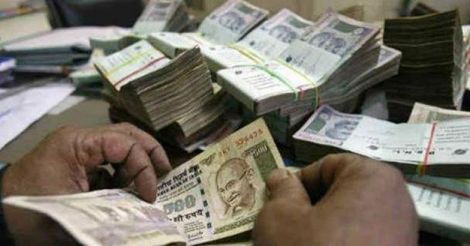About Rs 2.3 trillion of loans could slip into stressed loans in the next 12-18 months. This is an alarming indicator.
Going by data taken from answers to questions in Parliament in 2016, public sector banks (PSBs) were ahead of private sector banks in stressed assets.
The advances or loans provided by banks are termed assets. For banks, assets are an income generating area.
Banks make profits from interests and installments. If the installment is not paid until the due date, it is called a bad loan. If the non-payment extends to beyond 90 days, it is termed a non-performing asset (NPA).
Highest NPAs
As per data from November 2016, the State Bank of India had the highest NPAs, around Rs 93,000 crore, followed by Punjab National Bank (PNB) and Bank of India (BoI).
But, the combined NPA of PNB and BoI can just match the NPA figure of SBI.
Worst performing sectors
Metal products, textiles, beverages, tobacco, gem and jewelry, construction, mining and quarrying, spinning mills, wood products, and paper products had been listed as the worst performing sectors in terms of bad credit.
Analysts say some of these sectors were profit-makers and hence the NPAs were not directly linked to their inability to pay up.
So, stressed assets could be the result of bad lending practices, poor history check, and the inability or lethargy on part of banks to systematically set right stressed assets.
Social equations
The ruse among small credit-takers has been that the banks pursue them as soft targets while letting go big fish and debtors.
The government says it has been taking steps to recover bad loans.
Apart form setting up debt recovery tribunals, the government had amended the Securitization and Reconstruction of Financial Assets and Enforcement of Security Interest (SARFAESI) Act and the Recovery of Debts due to Banks and Financial Institutions Act (RDDBFI).
This apart, the government also implemented the Insolvency and Bankruptcy Code to enable better recovery.
Read more at: Latest in business | Stocks surge, govt sees boost for diplomacy, ports through stimulus plan

























 Banks may face Rs 2.3 trillion bad loans from corporate accounts alone: File photo
Banks may face Rs 2.3 trillion bad loans from corporate accounts alone: File photo